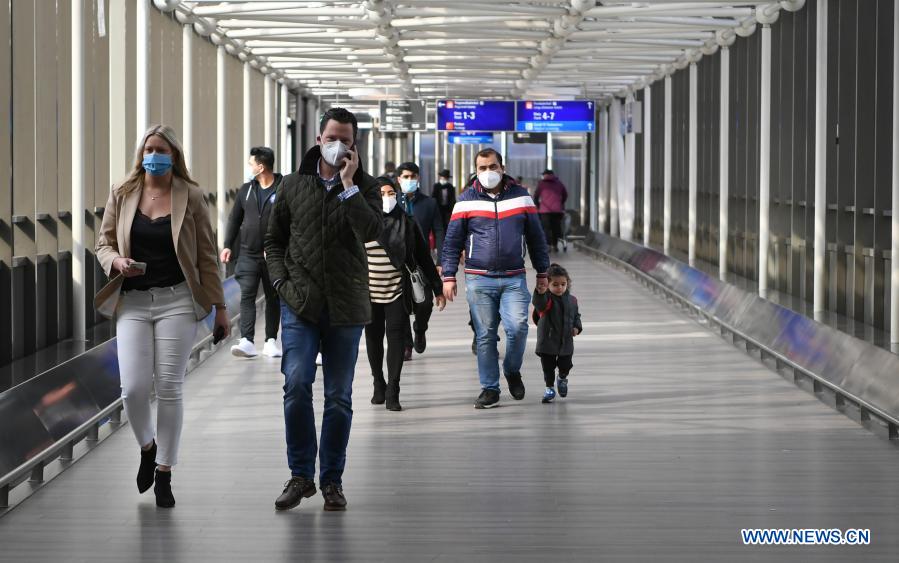

Daily COVID-19 infections in Germany continued to rise sharply as the country registered 17,504 cases within one day, the Robert Koch Institute (RKI) announced on Thursday.
The incidence rate of reported COVID-19 cases per 100,000 citizens in Germany in the past seven days also continued to rise from 86.2 on Wednesday to 90, according to the federal government agency for disease control and prevention.
To date, the country has recorded more than 2.61 million cases and 74,132 deaths. The RKI was particularly concerned about the rapid spread of the COVID-19 variant B.1.1.7 that initially detected in the United Kingdom.
Germany is urgently awaiting a decision by the European Medicines Agency (EMA) on AstraZeneca’s COVID-19 vaccine. Like other European countries such as France, Italy and Austria, Germany suspended the use of the vaccine as a “precautionary measure” because of potential thrombosis risk.
To ramp up vaccination capacities, Minister of Defence Annegret Kramp-Karrenbauer is seeking to open vaccination centers operated by the country’s armed forces, the Bundeswehr. Preparations had already started in November last year.
“With the Bundeswehr, we can operate 28 vaccination centers with up to three vaccination lines on a shift basis — that means seven days a week, day and night,” Kramp-Karrenbauer told the weekly business news magazine WirtschaftsWoche.
Almost 3.1 million people had been fully vaccinated as of Wednesday, bringing the country’s vaccination rate to 3.7 percent, according to the RKI.
Although Germany remains in a COVID-19 lockdown until at least March 28, the country has started gradual relaxations of health measures based on the seven-day incidence rate.
With 42 percent, frustration was by far the most named emotion by German citizens with regard to the current rise in new infections, according to a survey by the market research institute YouGov published on Wednesday.
Another survey by the Center for Higher Education (CHE) published on Thursday showed that despite the pandemic, German universities were able to maintain their lectures and examinations almost entirely.
Just under one percent of German university professors stated that lectures had to be canceled completely in the previous winter term, according to CHE which surveyed more than 27,000 students and 665 professors.